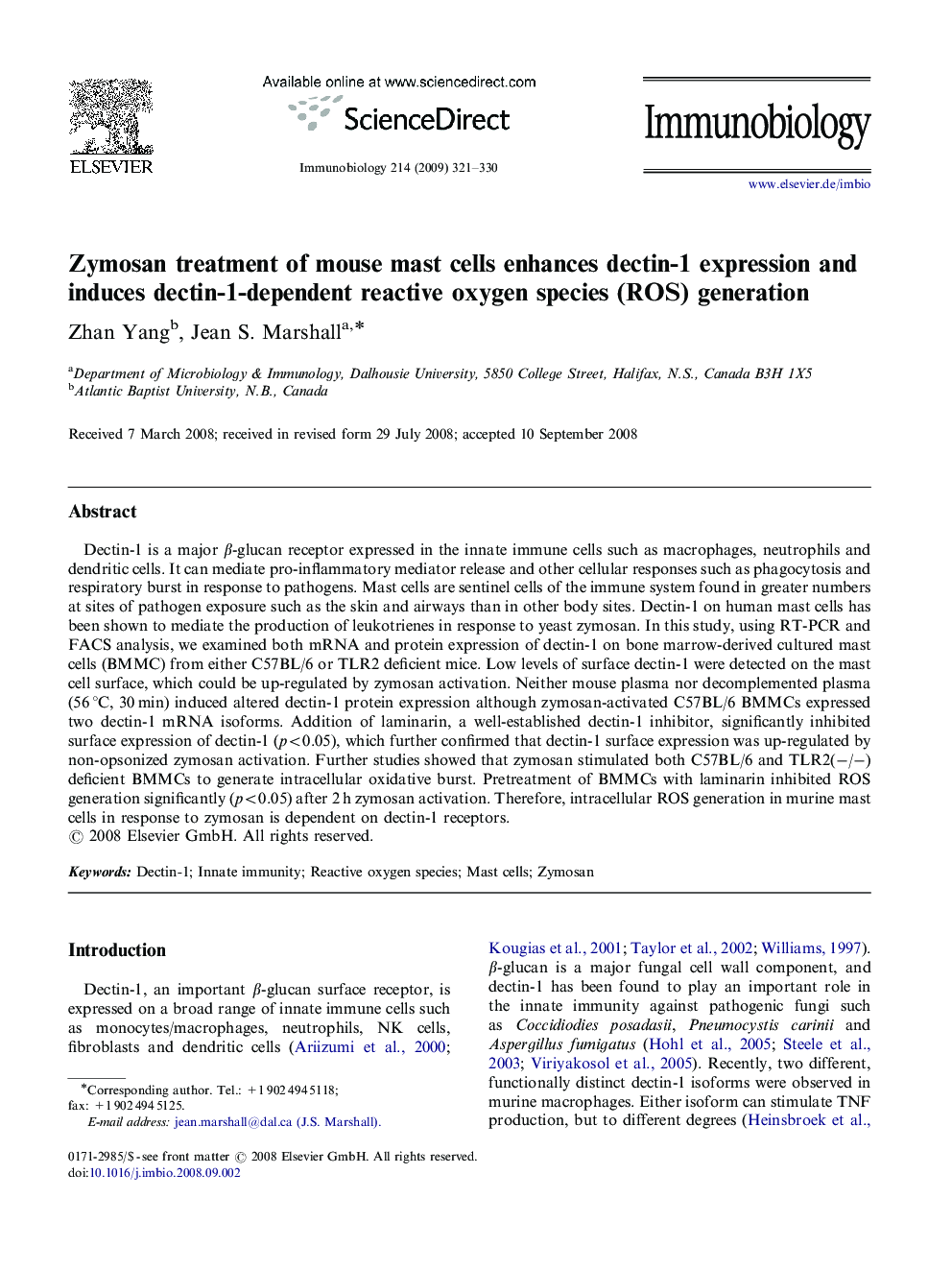| Article ID | Journal | Published Year | Pages | File Type |
|---|---|---|---|---|
| 2183468 | Immunobiology | 2009 | 10 Pages |
Dectin-1 is a major β-glucan receptor expressed in the innate immune cells such as macrophages, neutrophils and dendritic cells. It can mediate pro-inflammatory mediator release and other cellular responses such as phagocytosis and respiratory burst in response to pathogens. Mast cells are sentinel cells of the immune system found in greater numbers at sites of pathogen exposure such as the skin and airways than in other body sites. Dectin-1 on human mast cells has been shown to mediate the production of leukotrienes in response to yeast zymosan. In this study, using RT-PCR and FACS analysis, we examined both mRNA and protein expression of dectin-1 on bone marrow-derived cultured mast cells (BMMC) from either C57BL/6 or TLR2 deficient mice. Low levels of surface dectin-1 were detected on the mast cell surface, which could be up-regulated by zymosan activation. Neither mouse plasma nor decomplemented plasma (56 °C, 30 min) induced altered dectin-1 protein expression although zymosan-activated C57BL/6 BMMCs expressed two dectin-1 mRNA isoforms. Addition of laminarin, a well-established dectin-1 inhibitor, significantly inhibited surface expression of dectin-1 (p<0.05), which further confirmed that dectin-1 surface expression was up-regulated by non-opsonized zymosan activation. Further studies showed that zymosan stimulated both C57BL/6 and TLR2(−/−) deficient BMMCs to generate intracellular oxidative burst. Pretreatment of BMMCs with laminarin inhibited ROS generation significantly (p<0.05) after 2 h zymosan activation. Therefore, intracellular ROS generation in murine mast cells in response to zymosan is dependent on dectin-1 receptors.
